
University and government organisations to work together on public leadership
How adaptable can and should a government organisation be – in a crisis situation, for instance? How can such organisations join forces to solve the problems faced by citizens? Leiden University will collaborate with six government organisations that are opening their doors for research and the joint development of public leadership.
‘The complexity and capriciousness of the everyday practice of public leadership demands close collaboration between research and practice.’
Sandra Groeneveld and Ben Kuipers from the Leiden Leadership Centre will coordinate the research. ‘Leadership development will become evidence based, and research into leadership will gain in practical relevance,’ says Sandra Groeneveld, Professor of Public Management. The partners signed their agreement at the Faculty of Governance and Global Affairs in The Hague on 5 September. Ben Kuipers, Director of the Leiden Leadership Centre, explains: ‘This is a special five-year partnership in which we will get to know these organisations and share our experiences of topical leadership challenges.’
Effects for citizens
An important, topical question is how adaptable government organisations should be. They operate on the basis of agreed rules. But in crisis situations, it is important for them to be adaptable at all levels of the organisation and to come up with quick solutions.
Another important research question relates to collaboration between government organisations. Kuipers mentions a complex issue such as debt among people with an addiction. ‘How best can different organisations work together in this type of situation? What does that mean for leadership? And what are the effects for citizens?’
-
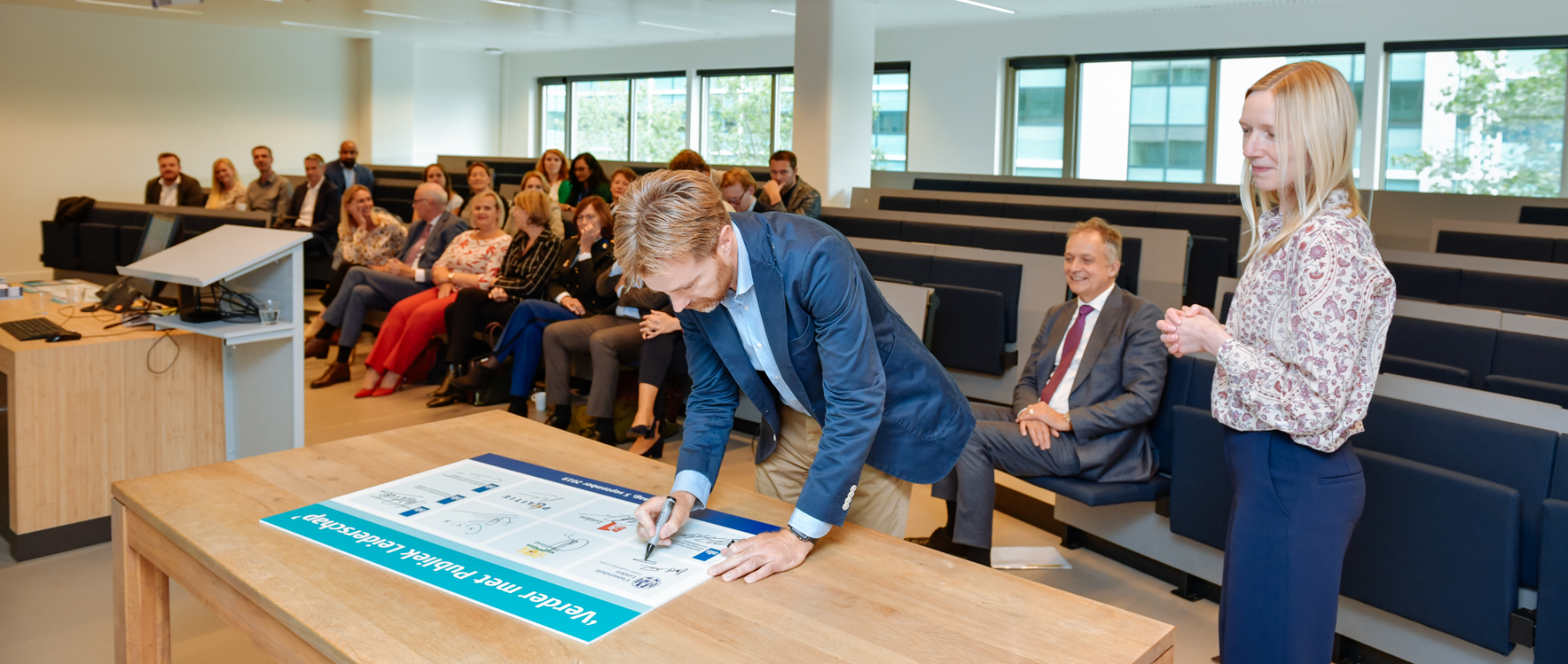
Ben Kuipers signs the ‘Further with Public Leadership’ partnership, under the watchful eye of Sandra Groeneveld. -
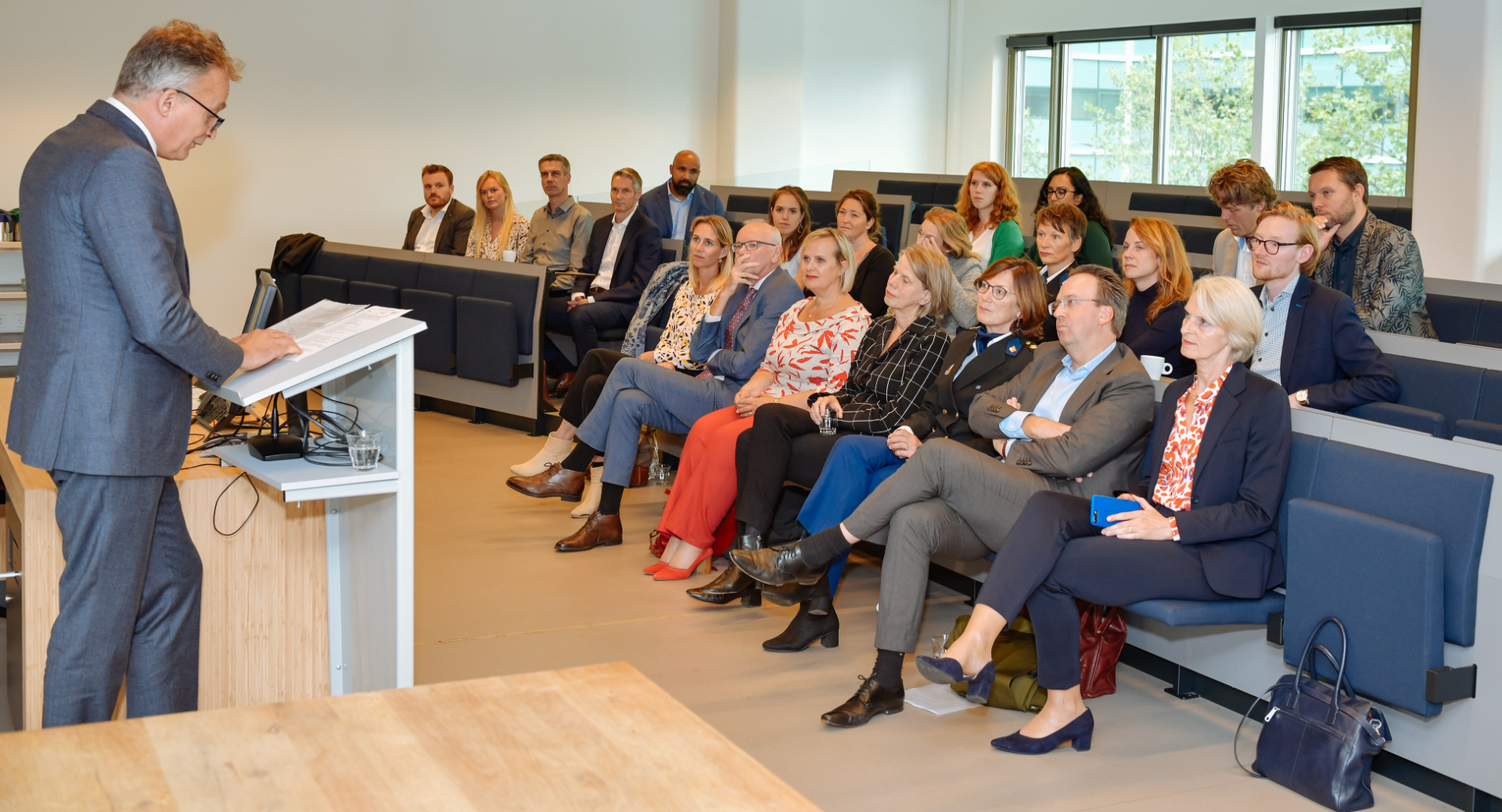
In the front row the representatives of the partner organisations: Pim van Vliet (Municipality of Leiden), Simon Sibma (SVB), Marjan van den Broek (Ministry of Justice and Security), Lia Kroon (Municipality of The Hague), Liesbeth Huyzer (National Police), Bram de Klerck (SCS at the Ministry of the Interior and Kingdom Relations) and Aly van Berckel (IND). -
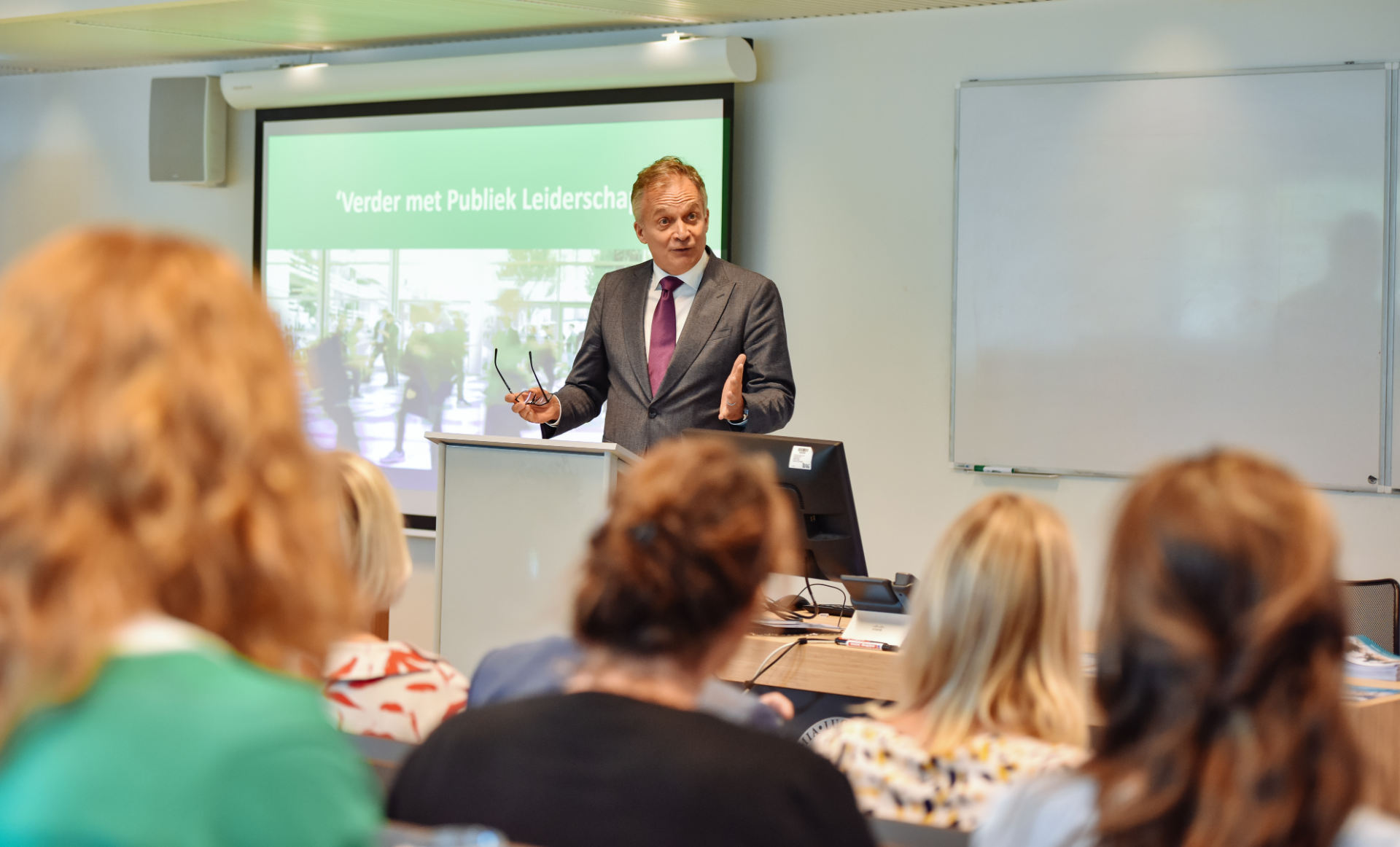
Bernard Steunenberg, Scientific Director of the Institute of Public Administration opened the launch. The Leiden Leadership Centre belongs to the Insitute of Public Administration. -
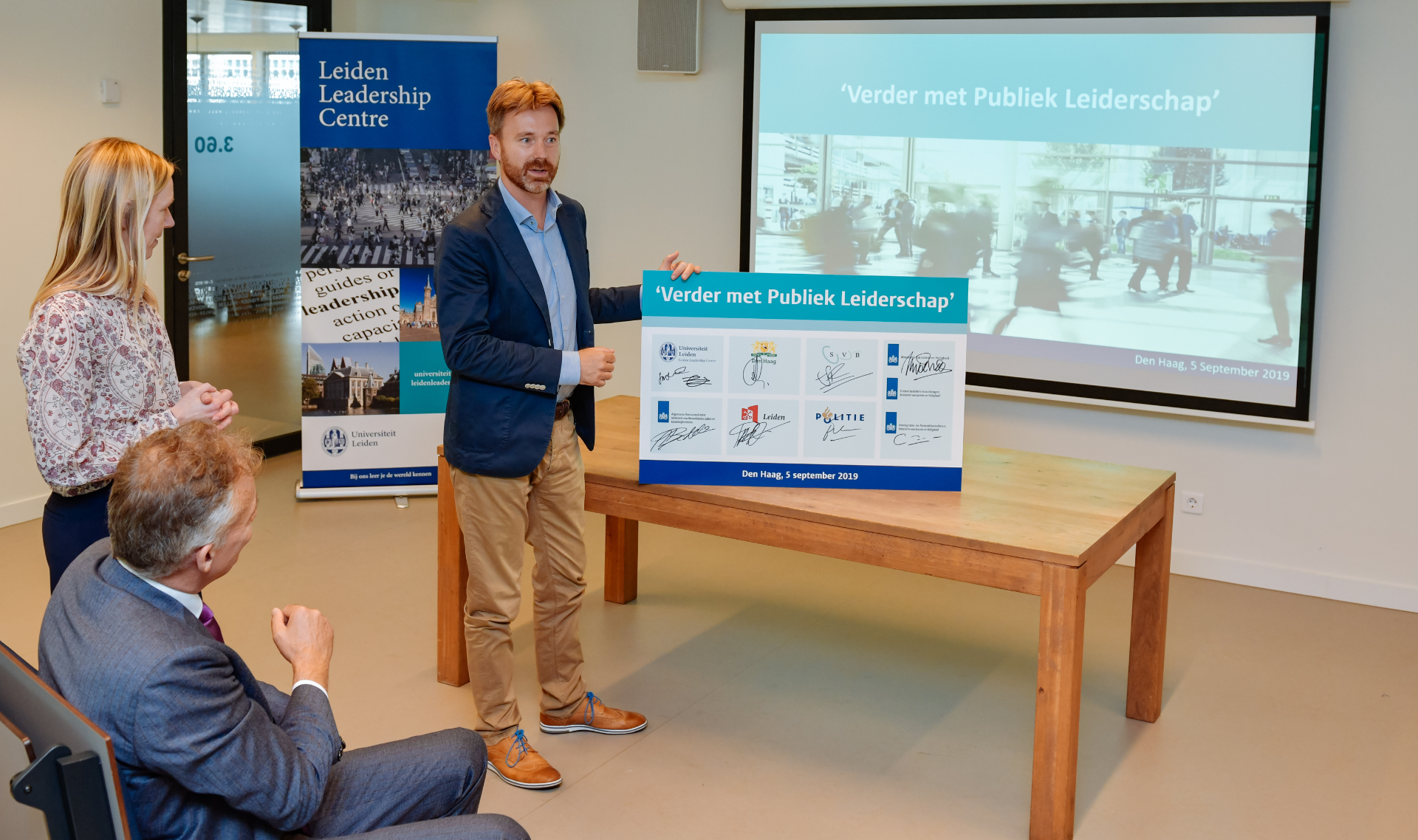
Ben Kuipers, Sandra Groeneveld and Bernard Steunenberg. -
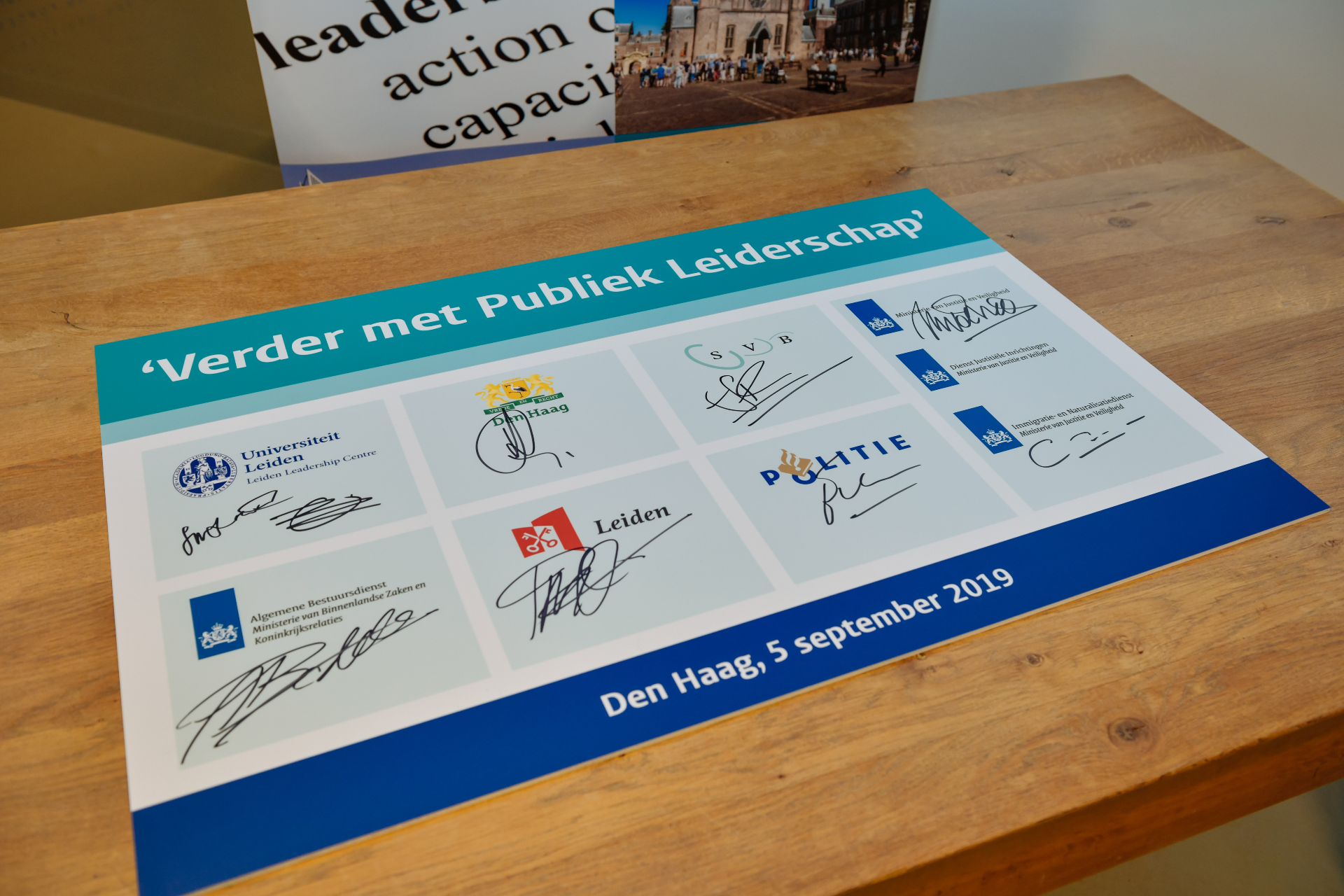
The placard bearing the signatures of the participating organisations in the ‘Further with Public Leadership’ partnership.
‘There is great demand among government organisations for continuing reflection on their role, leadership and collaboration. That is why these organisations are going to share knowledge and learn from one another.’
PhD candidates
The partnership will provide three PhD places and an endowed chair to help seek answers to these questions on public leadership. Kuipers emphasises that room has been left in the programme for the partners to add new research questions and initiatives.
Responses from the partners
The partners are the Leiden University Leiden Leadership Centre, the Custodial Institutions Agency (DJI) and the Immigration and Naturalisation Service (IND) from the Ministry of Justice and Security, Sociale Verzekeringsbank (SVB), the National Police, the Senior Civil Service (SCS) of the Ministry of the Interior and Kingdom Relations, and the Municipalities of The Hague and Leiden. The partnership may be further expanded.
Simon Sibma (Chair of the Board of Directors of the SVB):
‘A reliable government with visible value for society demands public leadership.’
Aly van Berckel (General Director of the IND):
‘We will enrich the approach by forging links with multiple disciplines and organisations.’
Liesbeth Huyzer (Member of the National Police Chiefs Council):
‘The current speed and polarisation of society puts increasing pressure on leadership.’
Lia Kroon (General Director of the Department of Education, Culture & Well-Being at the Municipality of The Hague):
‘The platform role of the partnership, which means the partners will also learn from each other, is an important reason for us to join in.’
Pim van Vliet (Clerk of the Municipality of Leiden):
‘By listening, discussing, learning and experimenting, we as an organisation hope to earn the trust of our residents and partners every single day.’
Bram de Klerck (General Director of SCS at the Ministry of the Interior and Kingdom Relations):
‘This will ensure that leadership at central government keeps up with the times.’
Text: Linda van Putten, Tim Roumen and Merijn van Nuland
Photos: Arash Nikkhah, Studio Arash
